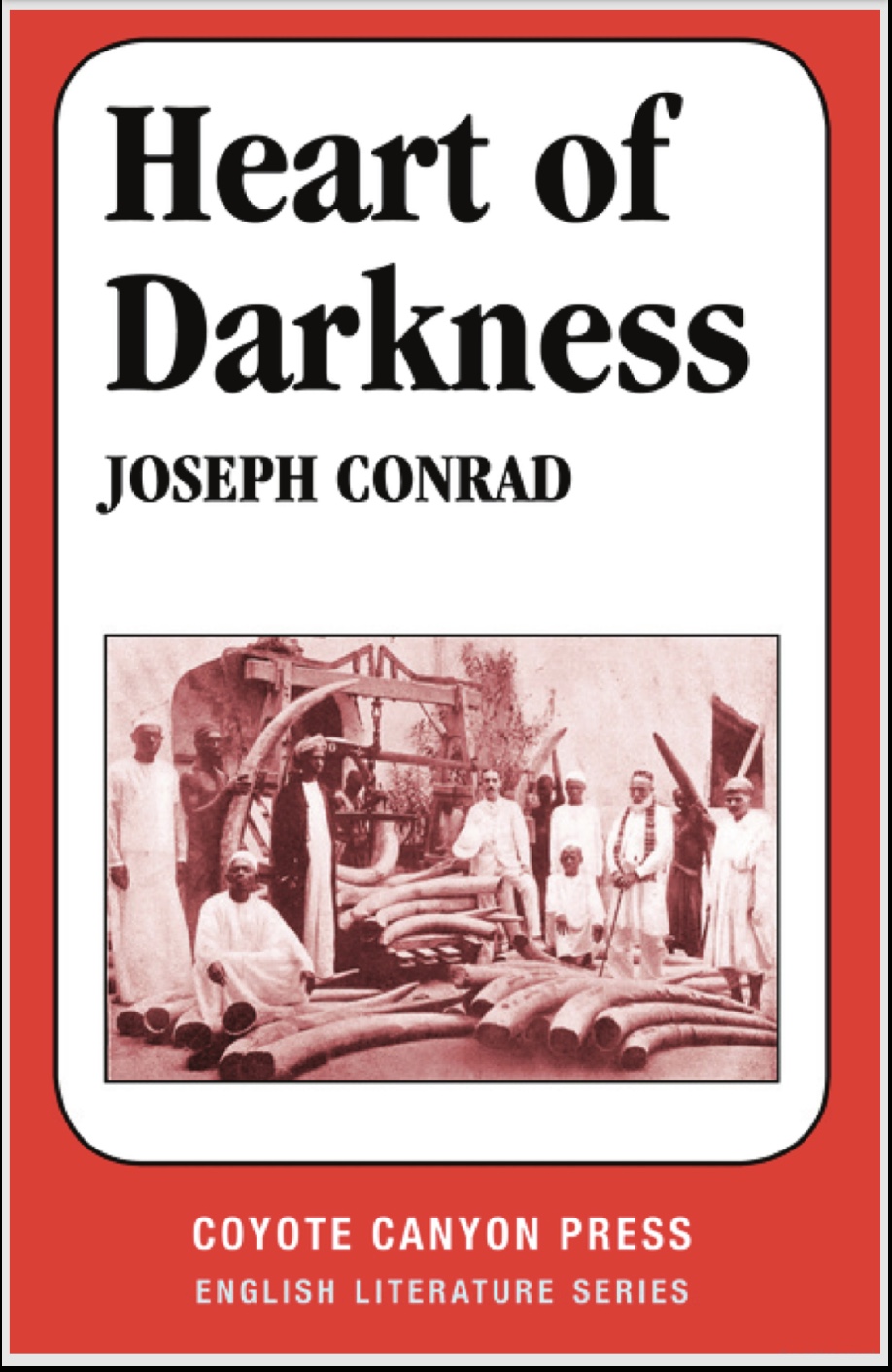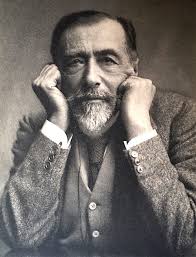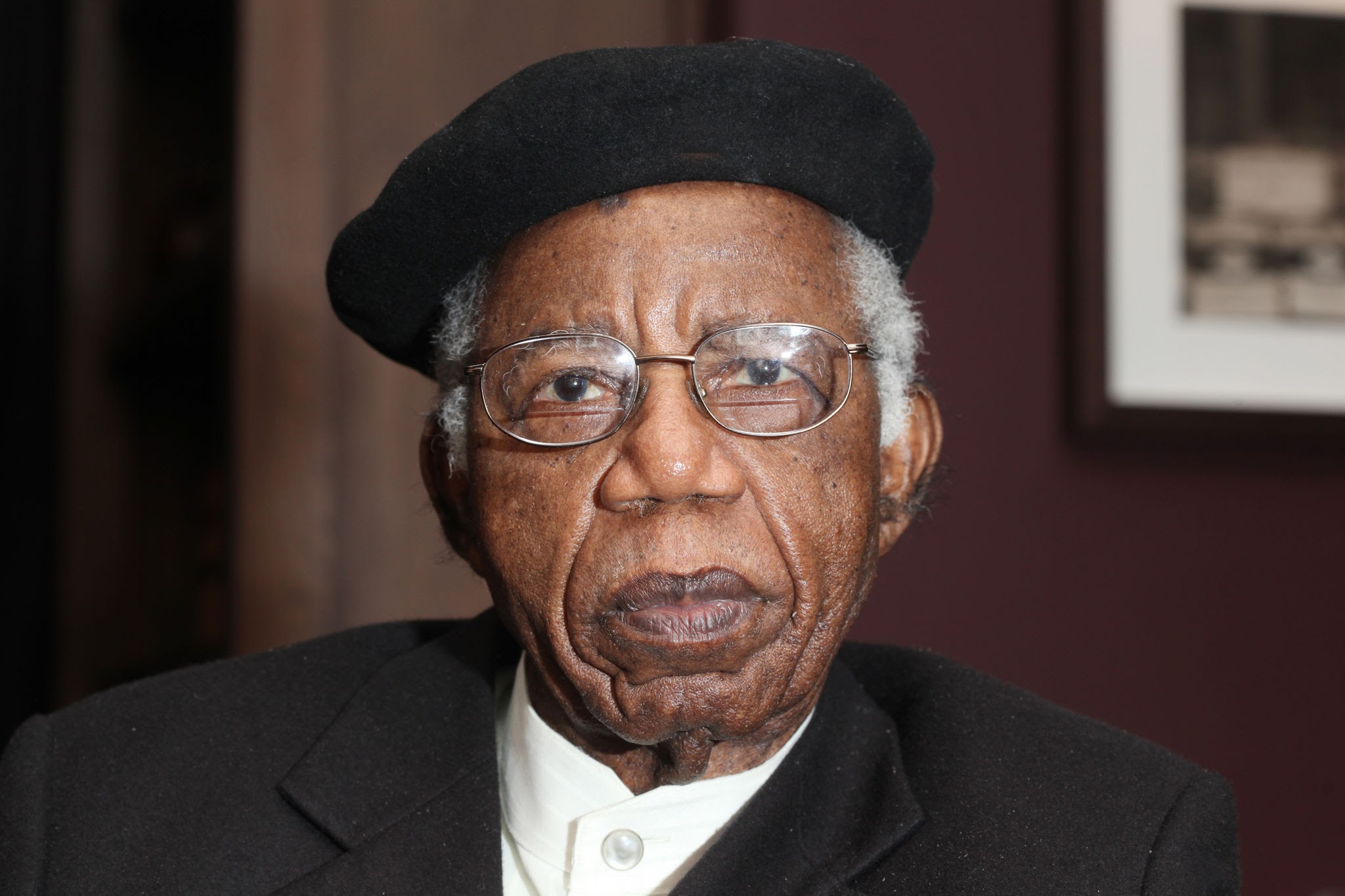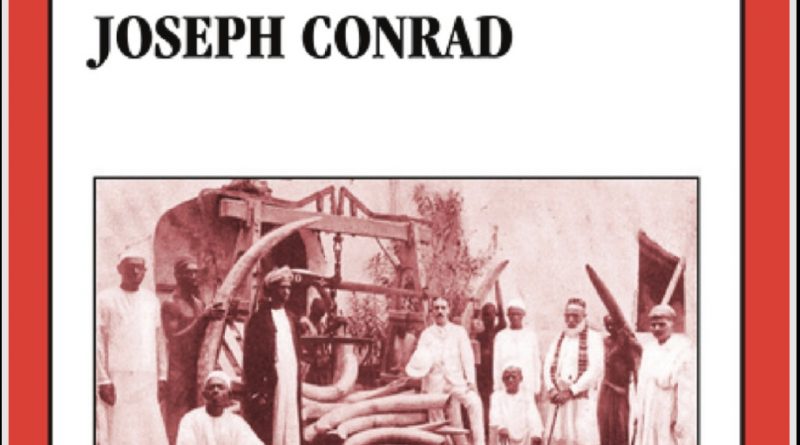A Literary Analysis of Joseph Conrad’s Heart of Darkness And Its Influence On Chinua Achebe.
Like in Most of Literatures of the Empires there is Racism in Joseph Conrad’s Heart of Darkness
The Saturday Nation in Nairobi has been intermittently publishing discourses about Joseph Conrad the author of Heart of Darkness. On 15th January 2017, it published a page-long article about Chinua Achebe and Joseph Conrad, the article was written by Mr. Ilosa, the article pointed out that Chinua Achebe conned the world by misleading his readers to believe that Joseph Conrad’s Heart of Darkness is all about European racism against Africa.
The writer, Mr. Ilosa was writing about Achebe’s paper under the title, An Image of Africa: Racism in Conrad’s Heart of Darkness, published in the literary Journal of Massachusetts Review in 1977.Unfortunately, this Ilosa only reacted against the title of Achebe’s paper without careful reading of the paper as well as the book Heart of Darkness which Achebe was writing about. The fact is that there is palpable racism in Conrad’s heart of Darkness. This is a fact which Dr. Suindu has pointed out even though Caroline Mwende in her recent rejoinder contradicts by saying that Conrad was a friend of black people only writing to show the colonial brutality that Europe visited on Africa. No, Mwende was not right.

A proper Analysis of Joseph Conrad’s Heart of Darkness
First, Conrad’s Heart of Darkness is a collection of four short Stories-Outs Post of Progress, Karain, Youth and then Heart of Darkness. All these stories share common themes and style of language. The most common themes are-European imperialism, European chauvinism, white superiority, racism against non Europeans,poverty,savagery,forced labour,slavery poaching of wood and elephant tusks, steam-shipping, superiority of the English race, violence, brutality, river Congo, Indian ocean and so forth.
Out of all, Conrad was so much keen on using his characters like Kurtz and Marlow to communicate the idea of European Superiority over other races and superiority of English culture over other European cultures.

When you read an introduction to the Heart of Darkness by Cedric Watts, cases of racism in the book are clearly pointed out. Watts show that Conrad uses his characters to perpetrate English racial insolence on other Europeans as at the same he justifies colonial violence and rampage by the Europeans against other races. In fact Watts makes a remark about Conrad in the Introduction to the Heart of Darkness by saying that Rudyard Kipling justified colonialism in a polite way, but Conrad did it in a cruel way.
Understanding Conrad’s Writing
The reason why Conrad took this offensive and artistic position is attributed to three misfortunes in his childhood life-Russian brutality on Poland where Conrad was born, absence of formal learning given that Conrad taught himself English, living as well as working as a migrant labourer in London. These three demeaning social experiences shaped Conrad into intellectual sycophancy to English culture and capital by attacking other cultures that would compete with Britain in an imperial-cum-colonial scramble for world resources. This is so because Josef Conrad was born Józef Teodor Konrad Korzeniowski to polish parents in Poland. Russia annexed Poland, and then his family ran to Britain as refugees. He joined the British merchant marine and later was granted British nationality in 1886. Though he did not speak English fluently until his twenties, he was a master prose stylist who brought a non-English sensibility into English literature. The virtue which earned him recognition as a British writer.
It is not only Conrad that is unique to this social problem of being an intellectual migrant, literary history show that there are also very many other writers that have been affected by migration into intellectual sycophancy to the host culture and capital. For example, Gunter Grass was born in Danzig-Poland and Frantz Kafka was born in Czech both succumbed to Teutonic intellectual culture, Just the same way V S Naipaul and Salman Rushdie both born in India are now recognized as British writers, or the way Olaudah Equaiano the author of Equaiano’s Travel was taken as a slave from Igbo in Nigeria but now included as a British writer in the Longman Anthology of British Literature.
Conrad’s Heart of Darkness as an Influence to Literary Personas such as Chinua Achebe

It is true Achebe accepted to be over-influenced intellectually by Conrad to an extent of adapting the title of his book Arrow of God by playing around with the title of Conrad’s book Arrow of Gold. Criticism against Achebe in this regard has it that as a professor of literature he was not to degenerate himself to this extent of compromising originality of thought and creativity. However, Achebe argued away this perceived failing in his paper about Conrad by arguing that his focus was not about Conrad as a writer but about Conrad as a capon copy of European attitude towards other societies during the heydays of imperialism. Similar arguments are made by Achebe in his later works like Hopes and Impediments; The Education of a British Educated Child, Troubles with Nigeria, There was a Country and also in his collection of essays under the title Morning Yet of Creation Day.
However, it is not only Achebe that got over-influenced by Conrad but many other good writers in the likes of; F. Scott Fitzgerald, William Faulkner, Ernest Hemingway, André Malraux, Eric Blair alias George Orwell, Graham Greene, Gabriel Garcia Márquez, John le Carré, V. S. Naipaul, Philip Roth and J. M. Coetzee. Evidently, the themes addressed by all these writers touch on racism, imperialism and brutality of man in power over a man in powerless station.
It is acceptable that, Achebe in his paper was able to show the actual pockets of racism in Joseph Conrad’s Heart of Darkness. This paper is free online and can be read against the text of Conrad as presented in the Out Post of Progress and also in the novella Under Western Eyes to establish Conrad’s proclivity towards worship of the British brutality over other societies. Thus Mr. Ilosa was technically wrong; I encourage him to read Achebe’s paper, Conrad’s short Stories and Novels again.
It is also important to note that it is not only Conrad that ridiculed humanity of black people. Most of the literatures of the empires denigrated black people. Some did it intentionally as a way of justifying colonialism, but others were doing so out of ignorance. Rudyard Kipling is known for his theory of black people as a Whiteman’s burden, V S Naipaul has been openly irritated by Africa and black men even though he comes from Trinidad a country which has black and Indian citizens. His books; In a Free State, Mimic Men and Islamic journey are a testimony of his dislike for black people. In Sir Vidia’s Shadow, a biographical novel about V S Naipaul by Paul Theroux, it is narrated that when Wole Soyinka won Literature Nobel Prize in 1986 V S Naipaul condemned the Swedish Academy for pissing on literature. It is also narrated in the same book that Naipaul’s detest for black people made Dereck Walcott to react by scowling at him as ‘V S Nightfall’ given the evidence of darkness in Naipaul’s heart as evinced in his writtings that openly derogate black people. Conrad, Forster, Naipaul and Rushdie share same emotional weakness when it comes to use of a novel as a tool of good inter-racial relations. Their writtings did not recognize the natives of Africa. For example, there is short story written by Salman Rushdie in the Longman Anthology of British Literature under the title Zulu and Chekov. The story is plainly open that a black man is slow, not mentally gifted, a potential home-sexual, relying on the brawn, having no language but instead ever breaking English language.
Literature and Culture

Historically, Western or European intellectual heritage has to be forgiven for its failure to understand a Black man. It was Aristotle who said that slavery is the gift of Nature. Reading Alexander Pushkin’s biographies by Hughes Bareness and Henri Troyat confirms that the Grandfathers of Leo Tolstoy is the one who bought an Ethiopian slave from Turkey who was to become grandfather of Alexander Pushkin. And of course this is the key message in Pushkin’s Boris Godunov. Karl Marx looked at Africans as savages that benefitted from blessings of colonialism. In his Meinekempf Adolf Hitler declared Africans as sub-humans, Gunter Grass presented a witch as a black person in the Tin Drum.
Prophet Muhammed owned Bilal a black man as his slave, even though Bilal had converted to Islam. James Watson is on record for declaring an African as not intelligent. In the Memoirs an auto-biography of Barbara Bush, it is narrated that Barbara and George Bush once shared an apartment with a black man and his wife. The black man and his wife were qualified oil mining engineers. They were that type of black people that are somehow brown in the skin. When Bush’s mother paid a visit, she wondered what was going on, she was told that the black neighbors are a couple and qualified engineers. Bush’s mother was not convinced. She only rationalized it away that let Bush and Barbara stay there for a while before moving, furthermore those two blacks are a little bit brown like Indians.
Edward Said in both the Orientalism as well as Culture and Imperialism argues that a novel is not a peasant affair, that it is a bourgeoisie creation. It is meant for preserving bourgeoisies culture as it perpetrates bourgeoisie culture over the subaltern cultures. And of course it is true, going by a simple historical analogy, you find that the British society has produced more novels than any other society and it is the most imperial society given the number of domestic and overseas colonies it held. Charles Dickens as often given this British picture. In the Little Dorit, even also in the Great Expectations.
Because Joseph Conrad’s Heart of Darkness was written under the influence of the broad culture of European imperialism, it befits a digression for this paper to make a pique at wiles of imperialism as crusaded through literature. This pique is hinged on the reality that knowledge of the novel as an imperial outfit can also give victims the idea of using the novel as a counter-imperialist outfit. This is the knowledge which inspired Nuala Ni Dhomnail to take a cultural front in attempt to save Irish Culture from claws and spurs of Cultural Darwinism. She writes poems in Irish, she helped to establish a publishing firm for Irish literature, she has talked of Irish Software and Irish Orthographies as the basic requirements for survival of Irish Literature. Reading her Pharaoh’s Daughter and also the Corpse Who Sat up and Talked back you get implication that literature has a community it serves and a community it betrays. All communities have moral duties to appreciate and uphold their literatures.
By; Alexander Opicho,
(From Lodwar, Kenya).





